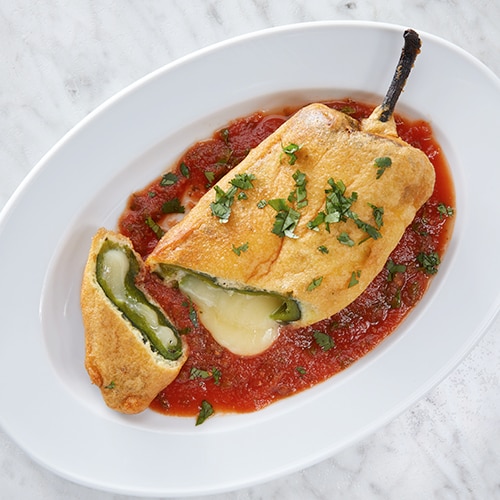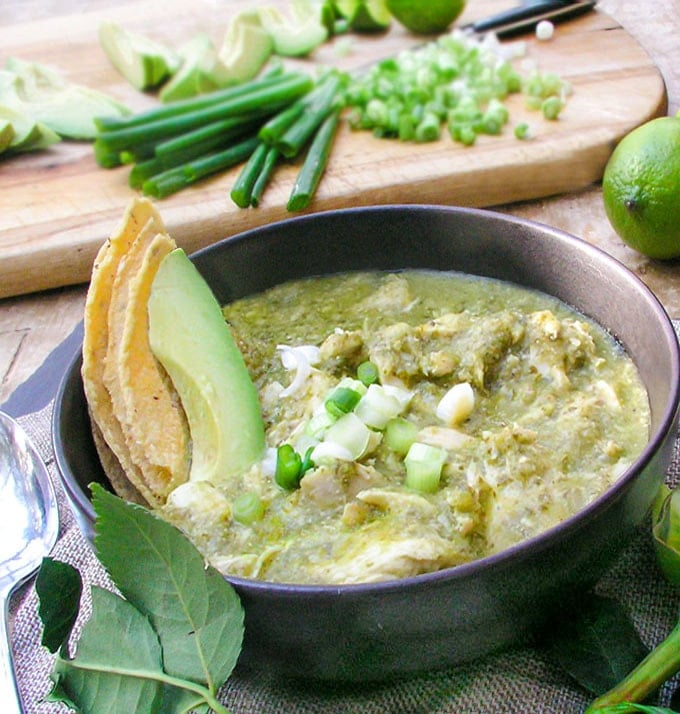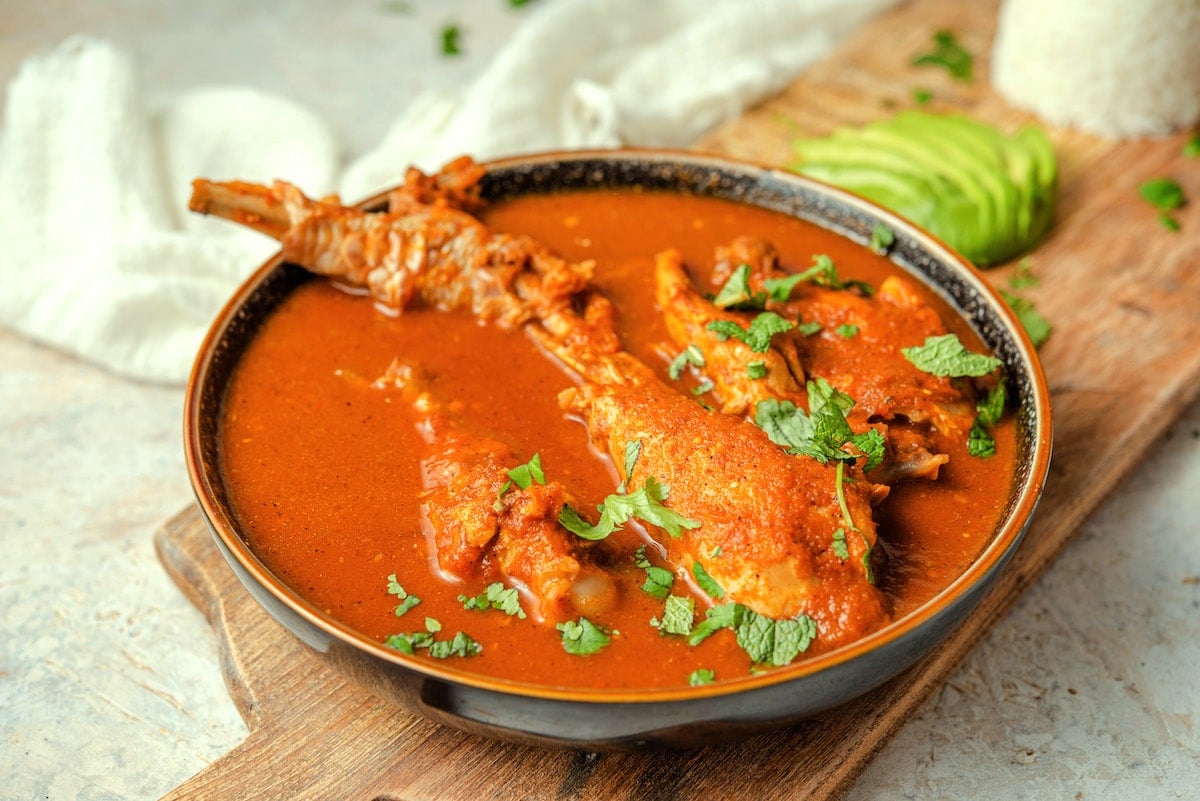

Pepián is the quintessential Guatemalan dish, one you’ll hear locals and tourists raving about. Typically a stew served over rice and with tortillas on the side, it’s had multiple iterations since its humble beginnings as a dish served during Mayan celebrations. Although the chicken version is arguably the most popular, pork and beef variations are also available for those looking to spice up the classic. To create the dish, a mix of red and black chiles, sesame seeds, cilantro, tomatoes, and tomatillos are roasted individually to build a complex flavor profile and are then blended into the beloved creamy stew. I was lucky enough to try homemade pepián in Antigua and found it to be rich in flavor, with soft carrots, potatoes, and tender chicken that stole the show.

Typically enjoyed during family gatherings and celebrations, chile rellenos are bell peppers that are stuffed with a mixture of pork and vegetables and served over a bed of tomato-based red sauce. This dish is also enjoyed in Mexico, where it’s typically stuffed with a cheese mixture inside of jalapeño peppers instead of bell.

Well-known for its vibrant green color, this chicken stew is made of a blend of green ingredients: green onions, green tomatoes or tomatillos, green peppers, chives, cilantro, and celery. Jocón originated in the Huehuetenango region in western Guatemala and is known as a traditional Mayan dish dating back to the 1500s.

Another traditional Mayan dish, kak’ik— a flavorful spicy turkey soup— directly translates to “red and spicy.” The exact rundown of ingredients varies slightly depending on the region in Guatemala the cook comes from, but always includes turkey, tomatoes, and chiles, which give it its classic red color, said to represent the blood shed in ritual ceremonies that were common at the time.

This traditional stew typically includes lean shredded pieces of beef, potatoes, and carrots, and has a slight kick of spice in its tomato-based broth, normally served over rice with a side of tortillas. Hilachas, which directly translates to “rags,” is also enjoyed throughout Central America, where each country has its own spin on the recipe.

A classic Guatemalan breakfast, this protein-heavy plate typically consists of some combination of eggs (scrambled or fried), sweet plantains, black beans, avocado, tomatoes, a small slice of queso fresco, or fresh white cheese, and tortillas on the side. I recomend to ask for spicy chile sauce on the side, which gives the dish an extra kick.

Mole de plátano is another popular sweet plantain–based dessert. To whip up the dish, fried sweet plantains is placed in a thick sauce of chocolate, sesame and pumpkin seeds, tomatoes, and chiles. The dessert is especially popular in its region of origin, San Pedro, a small town on Lake Atitlán in the western part of the country.

A fusion between Spanish and Indigenous cuisines, revolcado is enjoyed throughout Central America. Pig head, liver, and intestines are boiled for three to four hours and are then tossed into a stew of tomatoes, bell peppers, garlic, onions, and annatto, a seasoning known for its bright red coloring.

The Guatemalan version of a hot dog, shucos are typically served as a quick and easy street food (hence the name translating to “dirties”). However, any similarities with the American hot dog begin and end with the beef sausage, as shucos are wrapped in a toasted bun and topped with guacamole, cabbage, chorizo, pico de gallo, and whatever other toppings the late-night eater is in the mood for.

This filling steak plate is typically served during lunch or dinner and usually includes a grilled or barbecued cut of steak also known as churrasco. The plate will also usually include rice, beans, sweet plantains, and guacamole on the side.

A curious combination of flavors, rellenitos are a fusion of Spanish and Afro-Caribbean culinary influence. To make the dessert, ripe plantains are boiled, then mashed and combined with cinnamon and sugar and rolled into small balls. After a hole is made in the center of the plantain ball, a sweetened black bean mixture is poured in and then the balls are covered in flour and deep-fried in oil. The result is a crispy, surprisingly sweet dessert.